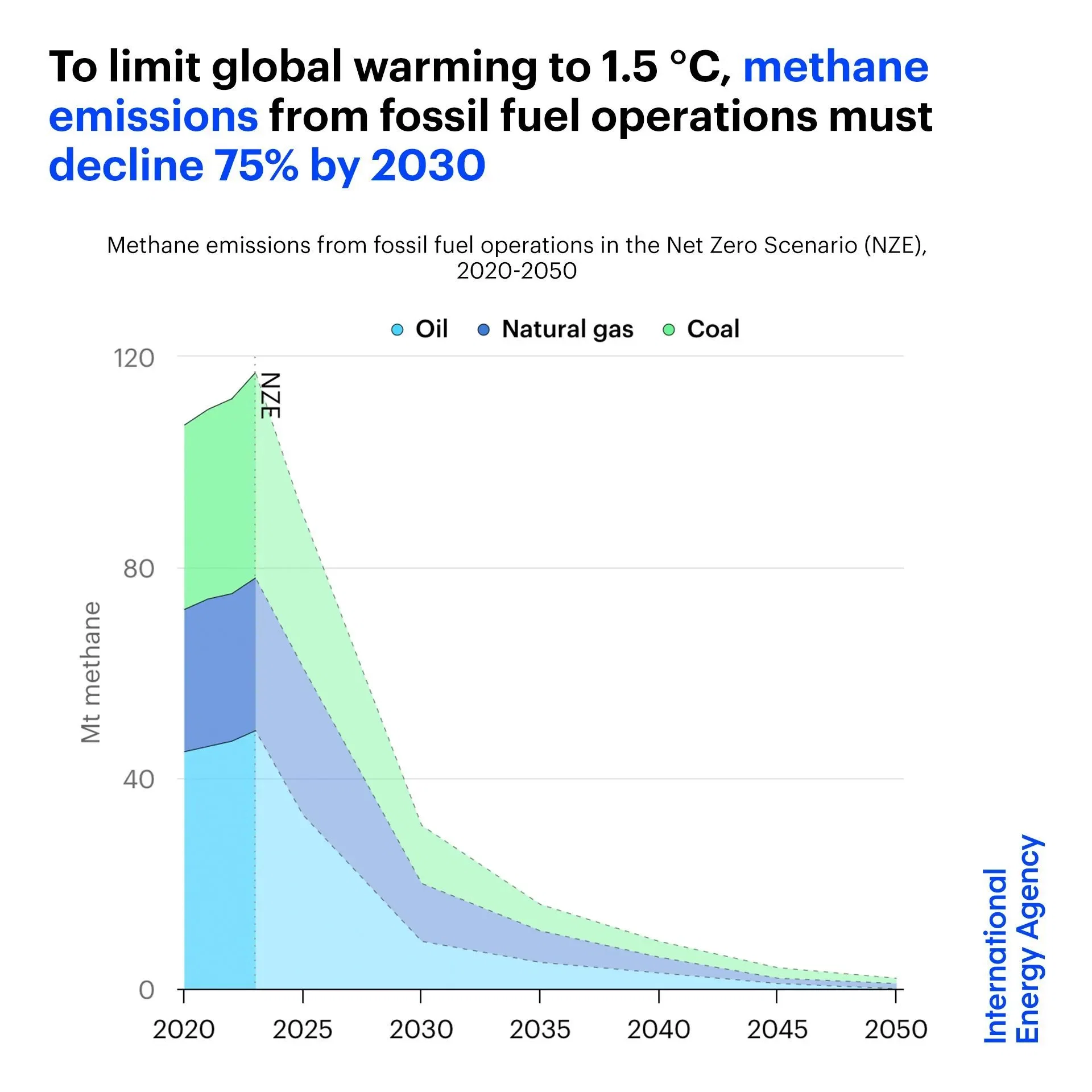Where Data Tells the Story
© Voronoi 2025. All rights reserved.

The IEA’s Net Zero Emissions by 2050 (NZE) Scenario limits the global average surface temperature rise to 1.5 °C with no or low overshoot while achieving universal access to modern energy by 2030. This scenario relies on a huge scaling up of clean energy to drive down fossil fuel use and emissions while ensuring uninterrupted access to energy services.
The scale up in clean energy technologies cuts oil and natural gas demand by around 20% to 2030 and coal use by around 45%, with further declines out to 2050. These reductions in fossil fuel use to 2030 would cut methane emissions in aggregate by around 30%. However, this decline is not big enough to limit warming to 1.5 °C. The NZE Scenario therefore includes additional, targeted actions to tackle methane emissions that would lead to even larger reductions. In total, methane emissions from fossil fuel production and use are cut by around 75% from today’s levels by 2030.
In the NZE Scenario, all fossil fuel producers achieve near zero methane emissions intensity by 2030. Operations with high emissions intensities where methane abatement measures cannot be systematically deployed, such as marginal oil and gas wells with emissions-prone equipment, are decommissioned. There is a greater reduction in coal supply from surface mines that produce steam coal – where there are fewer opportunities to deploy abatement technologies – than from underground coal mines that produce coking coal.
See the full report here.